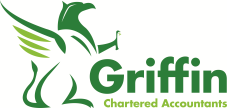Quarterly tax returns – You’re kidding right?

In winter 2015 the government announced it’s ‘Making tax digital – roadmap’ promising to transform HMRC into “One of the most digitally-advanced tax administrations in the world”. The business community reacted somewhat dubiously to this news. It seems unbelievable that an organisation that still prefers to use the post over emails and at times struggles to answer the phone, will in just a few short years be ‘fully digital’. However, it was the announcement that businesses would be expected to report ‘at least’ quarterly by 2020 that has attracted the most attention.
Business owners immediately took action and a petition urging the government to scrap the proposal quickly gathered 100,000 signatures. The petition was duly debated in parliament with the government’s response being that the new quarterly returns will not be like tax returns, but will be much simpler. They also said that accountancy software will have the functionality to send these reports directly to HMRC.
How will it affect your business
The government still has many questions to answer. However, the details that we do have suggest that keeping your records on an accountancy package (Xero, Sage etc.) will soon be a necessity for all but the smallest businesses. These apps will build in the functionality to send quarterly reports to HMRC in much the same way as VAT returns are already submitted.
For any VAT registered business quarterly reporting is already a reality. It is likely that the new quarterly reporting regime will require more information than a VAT return, but in terms of the practical impact on businesses it shouldn’t be any different. The same process of ensuring that costs and sales are up to date at least once a quarter and then submitting a return at the click of a button to HMRC should largely be the same.
Where a difference may emerge is how you interact with your accountant and tax adviser. HMRC are yet to confirm if quarterly reporting also means that they want businesses to pay their tax earlier. However, opinion is that more regular tax payments are the way the wind is blowing in the longer term.
The finer details?
Unfortunately, details remain scant, but in August the government published several consultation papers on the subject and here are they key facts to be aware of:
- Businesses and landlords with income < £10,000 will be exempt
- The changes will be reported gradually between 2018 and 2020
- Discussions are underway about exempting a further group of small businesses



